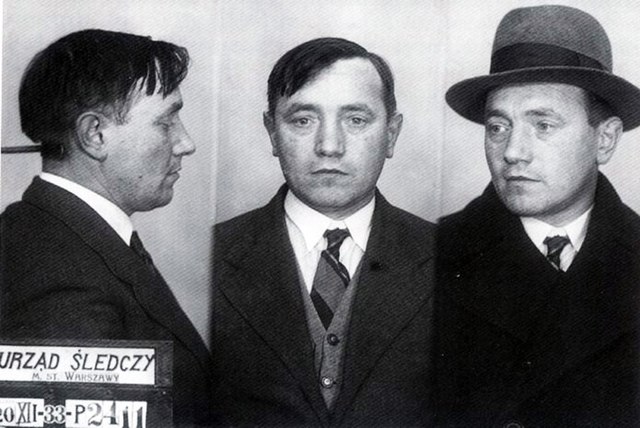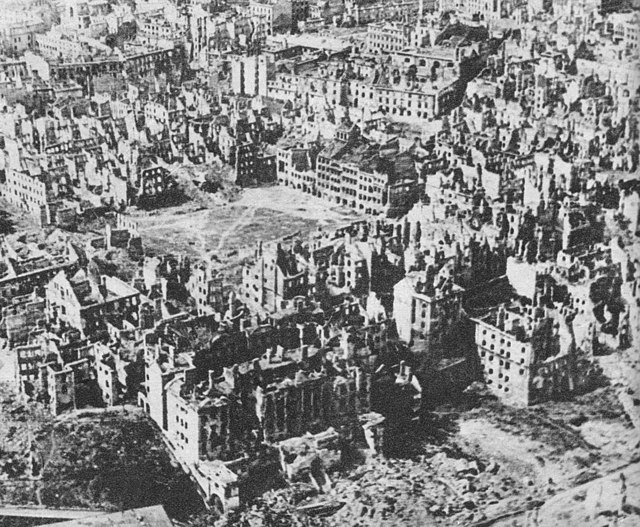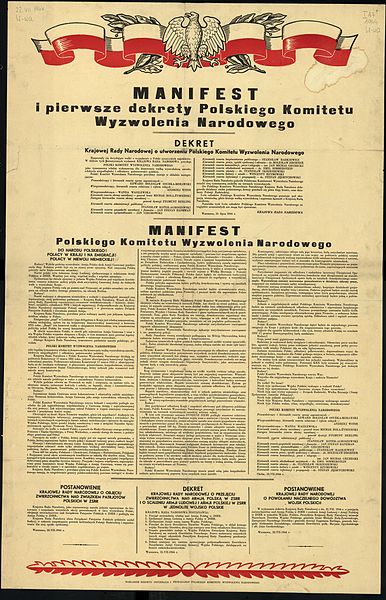Bolesław Bierut was a Polish communist activist and politician, leader of communist-ruled Poland from 1947 until 1956. He was President of the State National Council from 1944 to 1947, President of Poland from 1947 to 1952, General Secretary of the Central Committee of the Polish United Workers' Party from 1948 to 1956, and Prime Minister of Poland from 1952 to 1954. Bierut was a self-educated person. He implemented aspects of the Stalinist system in Poland. Together with Władysław Gomułka, his main rival, Bierut is chiefly responsible for the historic changes that Poland underwent in the aftermath of World War II. Unlike any of his communist successors, Bierut led Poland until his death.
Bierut in 1950
Bierut in around 1927
Bolesław Bierut in 1933, after his arrest by Polish Police
Bolesław Bierut inspecting members of the Union of Polish Youth, 1946
History of Poland (1945–1989)
The history of Poland from 1945 to 1989 spans the period of Marxist–Leninist regime in Poland after the end of World War II. These years, while featuring general industrialization, urbanization and many improvements in the standard of living,[a1] were marred by early Stalinist repressions, social unrest, political strife and severe economic difficulties.
Near the end of World War II, the advancing Soviet Red Army, along with the Polish Armed Forces in the East, pushed out the Nazi German forces from occupied Poland. In February 1945, the Yalta Conference sanctioned the formation of a provisional government of Poland from a compromise coalition, until postwar elections. Joseph Stalin, the leader of the Soviet Union, manipulated the implementation of that ruling. A practically communist-controlled Provisional Government of National Unity was formed in Warsaw by ignoring the Polish government-in-exile based in London since 1940.
Destroyed Warsaw, January 1945
The PKWN Manifesto, officially issued on 22 July 1944. In reality it was not finished until mid-August, after the Polish communist Moscow group was joined by the late-arriving Warsaw group, led by Władysław Gomułka and Bolesław Bierut.
Postwar Polish communist propaganda poster depicting "The giant and the putrid reactionary midget", meaning the communist People's Army soldier and the pro-Western Home Army soldier, respectively
ORMO paramilitary police unit during street parade at the Victory Square, 9 June 1946, Warsaw








